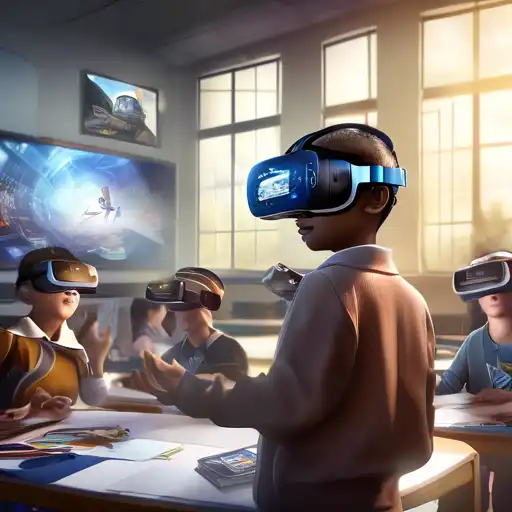Introduction to Virtual Reality in Education
Virtual Reality (VR) is revolutionizing the educational landscape, offering immersive learning experiences that were once beyond imagination. This technology is not just a tool for entertainment but a powerful educational instrument that can transform how students learn and interact with complex subjects.
The Benefits of VR in Learning Environments
VR provides a unique opportunity for students to explore subjects in a three-dimensional space, making abstract concepts tangible. From virtual field trips to historical sites to interactive science experiments, VR can enhance understanding and retention of information.
- Engagement: VR captivates students' attention like no other medium, making learning more engaging.
- Accessibility: Students can access worlds and experiences beyond their physical limitations.
- Practical Skills: VR simulations offer safe environments for practicing real-world skills.
Implementing VR in Schools and Universities
Adopting VR technology in educational institutions requires careful planning and investment. Schools and universities are beginning to integrate VR into their curricula, recognizing its potential to complement traditional teaching methods.
For more insights on integrating technology in education, explore our guide on educational technology.
Challenges and Considerations
Despite its benefits, VR in education faces challenges such as high costs, the need for technical support, and ensuring content is pedagogically sound. Addressing these issues is crucial for widespread adoption.
The Future of VR in Education
As VR technology becomes more affordable and accessible, its role in education is set to expand. Future developments could include more personalized learning experiences and greater collaboration among students in virtual spaces.
Discover the latest trends in the future of education to stay ahead in the evolving educational landscape.
Conclusion
Virtual Reality is paving the way for a new era in education, offering unparalleled opportunities for immersive learning. While challenges remain, the potential of VR to enhance educational outcomes is undeniable. As we move forward, embracing this technology will be key to preparing students for a digital future.
